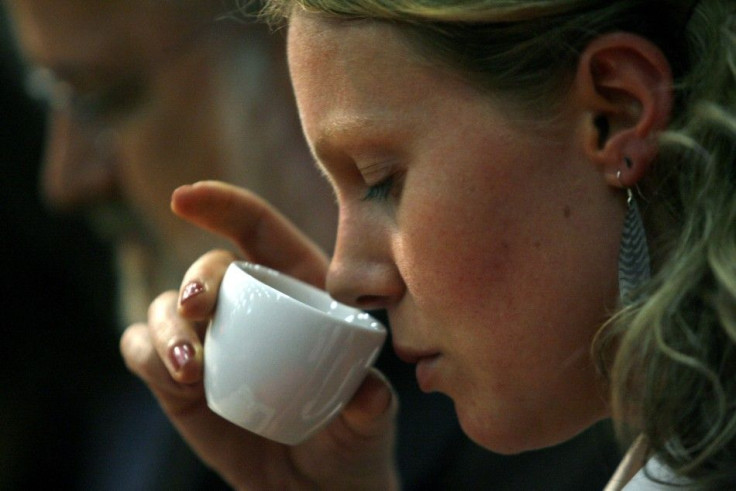Coffee and Diabetes: Four Cups of Joe Reduce Chances of the Disease

Here's how can reduce your chances of getting Type 2 diabetes: Drink four cups of joe a day. Epidemiologists noticed that people wired on coffee had a 50 percent reduction in adult-onset diabetes, but it wasn't until a Chinese group released a new study that suggested a molecular mechanism.
The research group found that a combination of three chemicals in coffee - caffeic acid, chlorogenic acid and caffeine - inhibited a toxic compound from forming that is found in patients with diabetes.
These findings suggest that the beneficial effects of coffee consumption on type 2 diabetes mellitus may be partly due to the ability of the major coffee components and metabolites to inhibit the toxic aggregation of hIAPP (human islet amyloid polypeptide), Ling Zheng, professor of cellular biology at Wuhan University in China, and colleagues wrote.
By blocking this complex, scientists have be able to treat or prevent Type 2 diabetes that affects an estimated one out of 12 Americans, according to the American Diabetes Association.
Our results suggest that caffeic acid had the greatest effects in the major components of coffee. The rankings for beneficial effects of coffee compounds against the toxic hIAPP aggregation are caffeic acid, chlorogenic acid and caffeine, Zheng and study co-author Kun Huang, professor of biological pharmacy at the Huazhong University of Science & Technology in Wuhan, wrote to USA Today.
One caveat: The study was done in cells and may not translate to real humans.
Scientifically, this is a very nice paper, but it has its limitations, Dr. Vivian Fonseca, president of medicine and science at the American Diabetes Association, said to USA Today. This was done in cells, not in animals or people. We also don't know if the (abnormal deposits arising from hIAPP) are the most important thing in the development of type 2 diabetes, or if it's something that develops later.
Researchers at the University of California Los Angeles announced Jan. 13 their own possible mechanism behing coffee's protective barrier against diabetes: a complex called sex hormone-binding globulin.
What does sex have to do with diabetes? The body's sex hormones testosterone, estrogen have long been hypothesized to play a role in diabetes.
Coffee consumption regulates this complex that plays a role in hormone regulation that may in turn be associated with diabetes, researchers said.
we now know that this protein, SHBG, is critical as an early target for assessing the risk and prevention of the onset of diabetes, Simin Liu, epidemiologist atthe UCLA School of Public Health who lead the study, said in a statement.
© Copyright IBTimes 2024. All rights reserved.





















